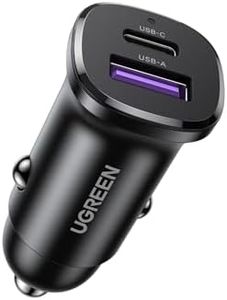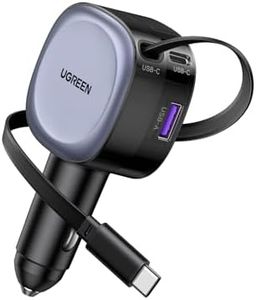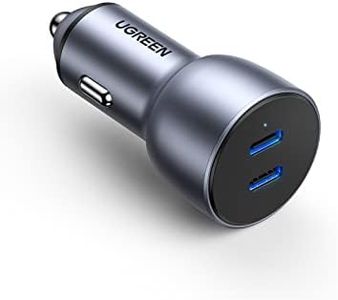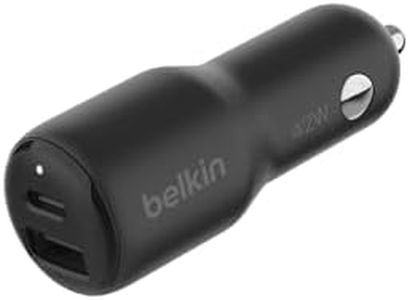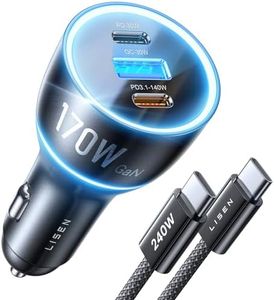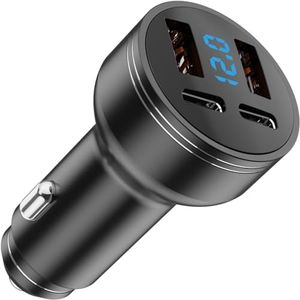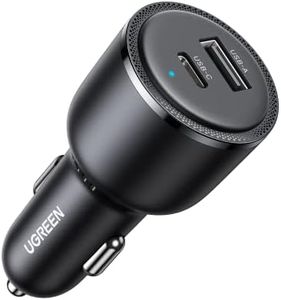We Use CookiesWe use cookies to enhance the security, performance,
functionality and for analytical and promotional activities. By continuing to browse this site you
are agreeing to our privacy policy
10 Best Usb Car Chargers
From leading brands and best sellers available on the web.By clicking on a link to a third party's website, log data is shared with that third party.
Buying Guide for the Best Usb Car Chargers
Choosing a USB car charger can seem simple, but picking the right one ensures your devices charge quickly and safely while you’re on the go. Pay attention to the technical details as well as your actual needs: the types of devices you plan to charge, how many devices you usually have in the car, and how important fast charging is for you. Understanding the key specs will help you avoid frustration from slow charging or incompatibility.Number of USB PortsThe number of USB ports tells you how many devices you can charge at the same time. If you often travel alone and only need to charge your phone, a single port might be enough. However, for families, ride-sharing, or anyone with several gadgets, more ports mean more convenience. You’ll find chargers with one, two, or several ports; choose the number based on the usual number of passengers needing to charge devices.
Output Power (Amps or Watts)Output power tells you how fast the charger can deliver energy to your device. It's usually listed as amps (A) or watts (W). A higher number means faster charging, but only up to what your device can handle. Basic chargers might offer around 1A (slow), while fast chargers give 2.4A or even higher per port (fast). For tablets or multiple phones, go for higher output per port. To decide, check your device’s charging requirements and match or slightly exceed them with your charger.
Total Power OutputTotal power output is the maximum energy the charger can provide for all connected devices together. If the total output is lower than the combined needs of your devices, they’ll charge slower. For example, a 4-port charger with a total of 20W will have to divide power among the ports. Make sure the total output is enough to charge all your most demanding devices at once.
Port Types (USB-A, USB-C)USB car chargers come with different port types, mainly USB-A and USB-C. USB-A is the older, rectangular port, while USB-C is smaller and provides faster, more efficient charging. Many new phones use USB-C, while older devices usually need USB-A. Look at your devices’ cables and choose a charger with matching ports, or a mix, to stay flexible.
Fast Charging Protocols CompatibilityFast charging protocols, like Qualcomm Quick Charge or Power Delivery (PD), allow some devices to charge much quicker than standard ports. Not every charger supports these, and not every phone can use them. If fast charging is important to you and your phone or gadget supports it, make sure your car charger does as well. Check your device’s specs to see which fast charge technology it uses, and choose a charger that mentions this compatibility.
Build Quality and Safety FeaturesSince car chargers handle electricity in a variable environment, build quality and safety are crucial. Features like overcurrent or overvoltage protection, temperature control, and certification labels help prevent damage or accidents. Look for products that mention these safety features and feel sturdy, so you’ll avoid issues like overheating or device damage, especially on longer trips.
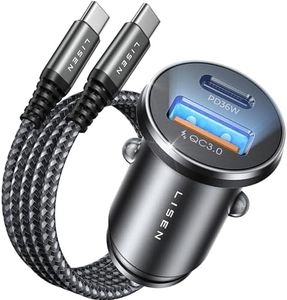
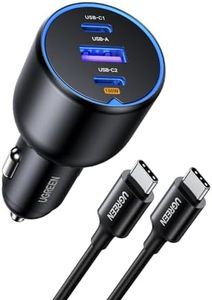
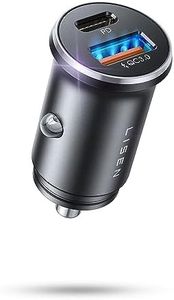
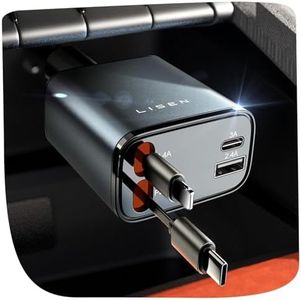

![INIU USB C Car Charger, 60W Total Fast Charging QC 3.0 PD 30W Dual Ports [ USBC + USB A ] All-Metal Mini Car Charger Adapter Compatible with iPhone 16 15 14 13 12 Pro Max iPad Samsung S21 Airpods](https://images-proxy.bestreviews.guide/eyboYoKKzabZ1TIAy8Rsv6uBlhQ=/0x300/https://m.media-amazon.com/images/I/41zapFRdSxL._AC_CX679_.jpg)
